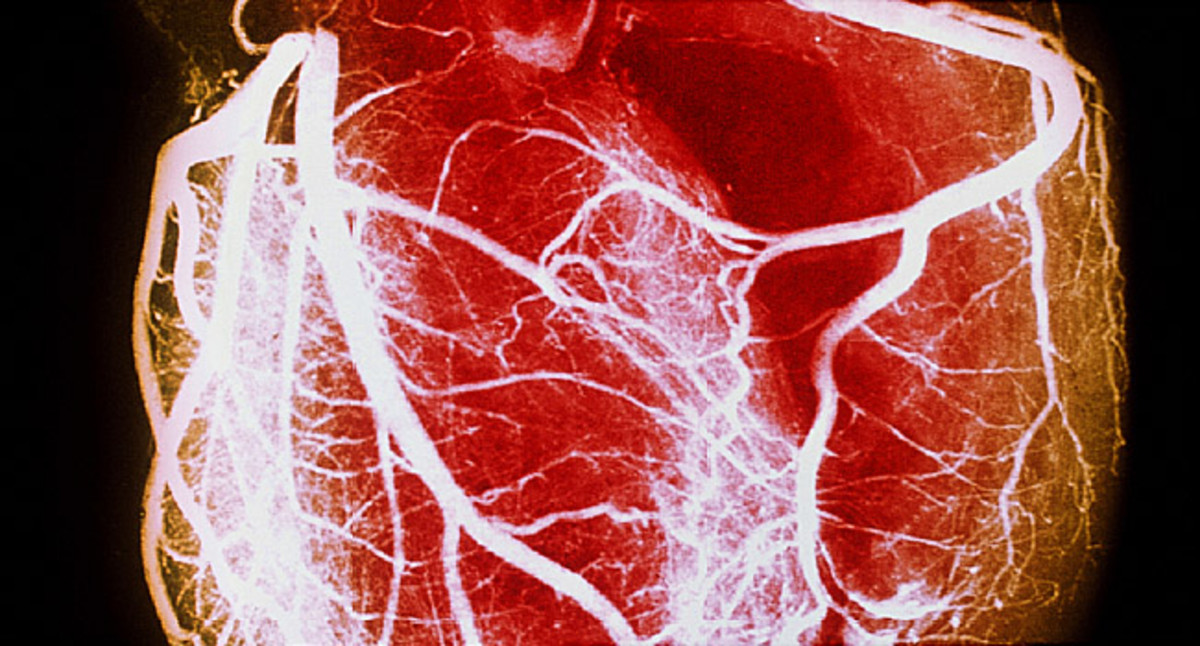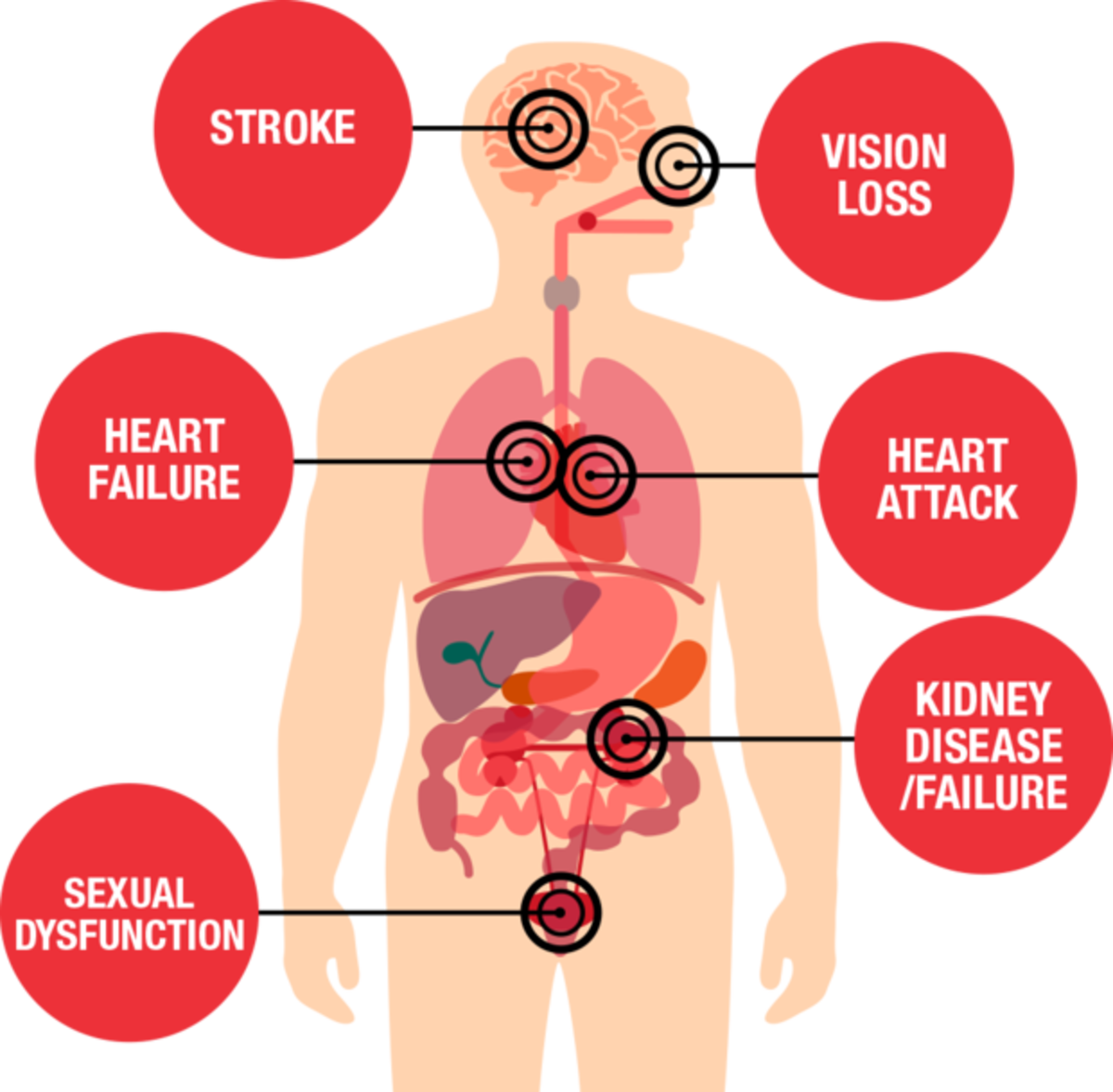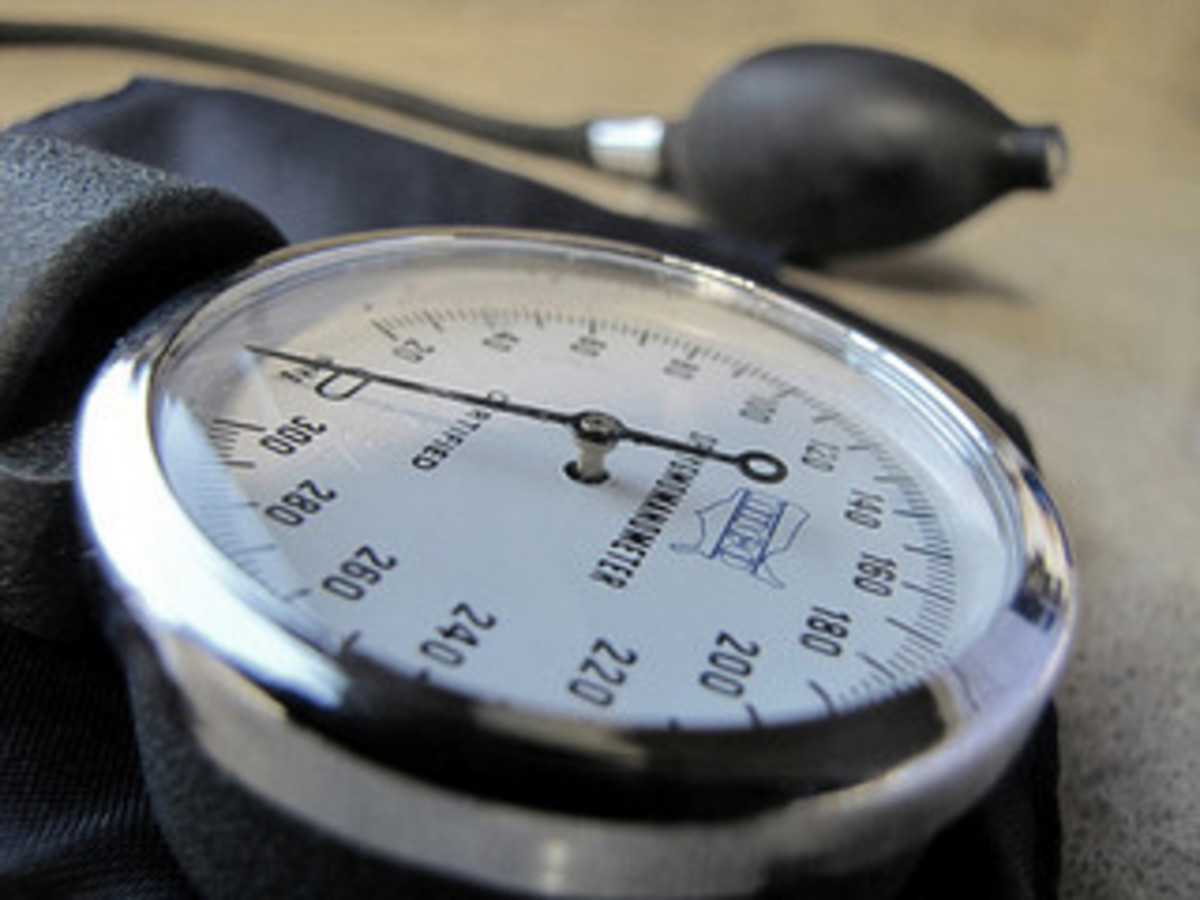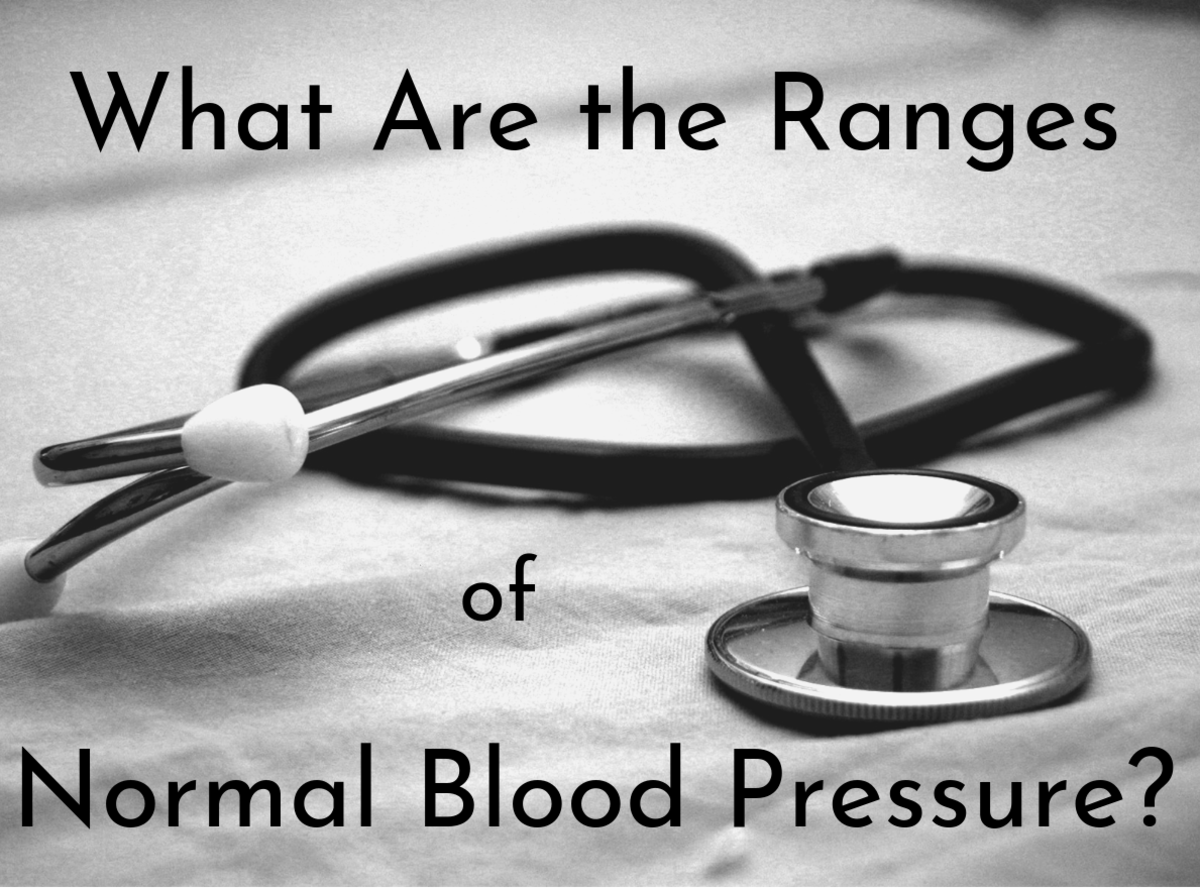Hypertension: Medications to Avoid with High Blood Pressure
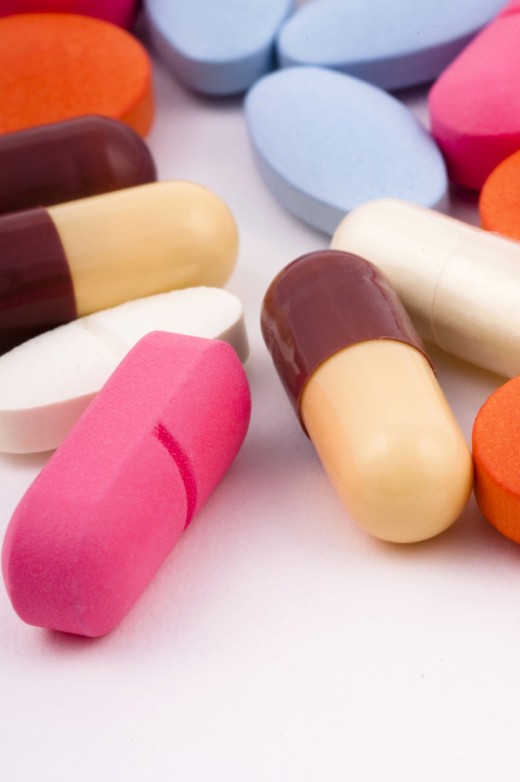
If you have hypertension there are common, over-the-counter (OTC) medicines that you should scrutinize before taking or completely avoid.
Hypertension, or high blood pressure, is a serious condition and one that far too many people don’t know they have. Yet to self-administer other non-prescriptive, “harmless” medicines that may increase blood pressure or undo the effects of treatment is to only exacerbate the problem.
I discovered that I was hypertensive while in college. I was in my late 20s but physically strong and fairly active. The discovery hit me like a ton of bricks and I had a hard time coping. The condition is in my family; but mine was a “Why me?” scenario when I was so young and fit.
I’ve managed to keep it controlled and to learn more about it and how to care for myself, including knowing what other medicines are permissible. Honestly, deadly medicine interactions, which we’ve all heard about, frighten me, and they should frighten you, too.
But scaring you is not the purpose of this discussion; making you informed and telling you—if you have hypertension—to play it safe is the purpose. Moreover, I will explain to you, in step-by-step fashion, the cause of hypertension, how treatment works, and how common remedies hinder treatment and contribute to the problem.
Categories of Blood Pressure
Normal: Less than 120/80
Pre-Hypertension: 120-139/80-89
Stage 1 HBP: 140-159/90-99
Stage 2 HBP: 160+/100+
Explaining High Blood Pressure
Do you have high blood pressure?
What Causes High Blood Pressure?
Hypertension is a mysterious condition. Exact cause for most cases—between 90 and 95 percent of them—is normally undetermined. This is known as essential hypertension and is differentiated from secondary hypertension that can be directly linked to issues such as kidney disease, tumors, and even pregnancy.
High blood pressure is a study of deep biological and medical research that cannot be explained here. The best way to understand it, however, is to address its complexity.
Think of it this way: In the body and as it relates to blood pressure there are a few command centers—the heart, the kidneys, and parts of the nervous, circulatory, and endocrine (gland) systems. Several substances in these locations work to regulate the command centers. But abnormalities sometimes occur with these regulatory agents, and it is these abnormalities that are believed to bring on hypertension.
The way this destabilized state of the body affects the command centers is important to learn for later. The heart now undergoes increased cardiac output, meaning that the heart pumps a larger volume of blood into the blood vessels, thus raising blood pressure. The kidneys can deliver a double-blow. These organs control the body’s retention of fluid and sodium and contribute significantly to blood volume—a problem if fluid is not sufficiently excreted from the body. The kidneys also produce renin, an enzyme that controls vessel dilation; and renin, in conjunction with a hormone produced in the liver (angiotensin), causes blood pressure to increase due to the constriction of blood vessels.
The end results of this havoc, if left uncontrolled, are a plethora of cardiovascular diseases, stroke, and kidney disease.
The Silent Killer
Hypertension is known as the "silent killer" because it doesn't create symptoms. Are you certain that you don't have high blood pressure?
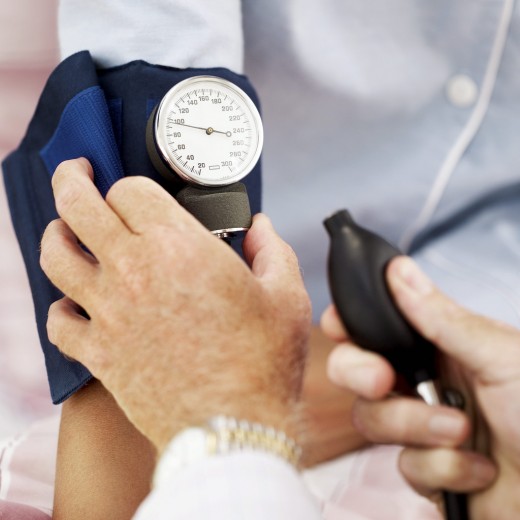
Did You Know...
...that 68 million Americans or 1 in 3 or 25 percent of adults are hypertensive?
OTC Drugs for the Hypertensive
Four Classes of HBP Drugs
Diuretics - eliminate water and sodium from the body
Vasodilators - widen blood vessels
Cardioinhibitory - slow the heart and lessen the force of contractions
Sympatholytics - last resort drugs that work on nerve impulses
How Blood Pressure Medicines Work
Blood pressure medications bring control to this chaos. There are four classes: diuretics, vasodilators, cardioinhibitory, and central sympatholytic. The first three are the most commonly used with sympatholytic drugs required when patients do not respond to others.
Diuretics counter hypertension by causing the body to eliminate sodium and water, offsetting irregularities in the kidneys. You may have heard some people refer to their “water pills” since it may induce frequent and urgent urination. Thiazide diuretics are one of the most common types used in this category; and many people are familiar with one form of it, hydrochlorothiazide.
Vasodilators cause vessels to widen, thus countering effects of increased cardiac output and blood volume. There are several types of vasodilators and many of them work to regulate the effects of the enzymes and hormones already mentioned, for instance, the very common ACE inhibitors (angiotensin converting enzyme) (e.g., Vasotec, enalapril) and renin inhibitors (e.g., Tekturna).
Cardioinhibitory drugs work by decreasing the heart rate and the force exerted with each contraction. This retards increased cardiac output and decreases pressure on vessel walls. There are two types of drugs here: beta blockers and calcium-channel blockers.
Beta blockers (e.g., atenolol and metoprolol) slow the heart; but because of more potential side effects, they are used only with last resort. Calcium-channel blockers (e.g., Norvasc, amlodipine) reduce calcium, which relaxes blood vessels, thus leading to vasodilation.
If you have hypertension and use only one drug to control your condition, you are very lucky. But many people have to use two or three drugs in combination to manage the problem. I use three—an ACE inhibitor, beta blocker, and calcium-channel blocker.
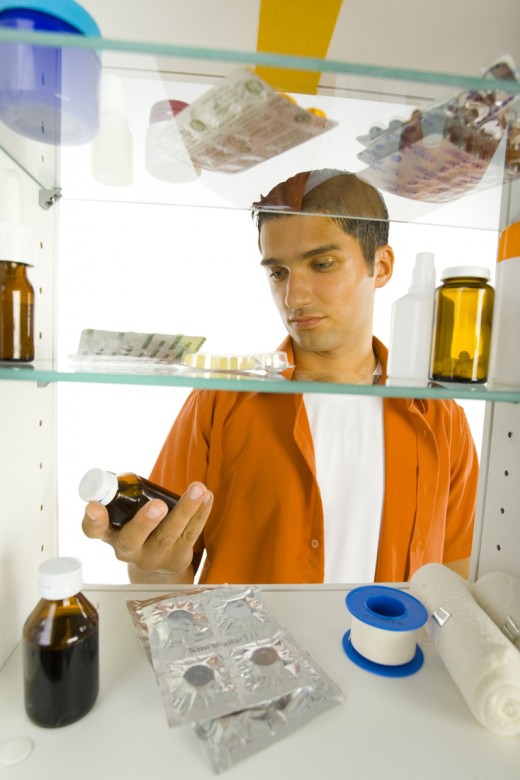
QUIZ: What Do You Know About High Blood Pressure?
view quiz statistics
Common Medicines to Avoid with Hypertension
Now at this point our hypertension is under control. We know how it’s caused and how to treat it. Yet, invariably, life happens: we get a cold or injure ourselves, start a diet or perhaps a family—but this is no time to forget our health condition. Our choices here are important because they have the potential to destabilize everything we’ve corrected.
Some medicines must be avoided or discussed with a physician before taking.
One class of these is decongestants, which act as vasoconstrictors. Decongestants cause the heart to beat faster and blood vessels to tighten and so increase blood pressure. Read labels! If the product contains pseudoephedrine (e.g., Sudafed, TherFlu, Actifed, or any –D product), ephedrine, phenylephrine, naphazoline, synephrine, or oxymetazoline, avoid it. This goes for pills and topical nasal decongestants, too, like Afrin and Vicks Vapor Inhaler.
Another very important class of medications to avoid is NSAIDs, or non-steroidal anti-inflammatory drugs. These are pain relievers that also work as vasoconstrictors and cause the body to retain sodium. High doses of NSAID medicines can cause kidney disease, again boosting hypertension.
Popular NSAIDs are aspirin (Bayer, Ecotrin, Excedrin, Bufferin), ibuprofen (Advil, Motrin, Nupril), and naproxen (Aleve)—and others. I will also include here that migraine medications should be carefully selected as they have the tendency to constrict blood vessels in the head.
Weight loss medications often contain stimulants, like caffeine and ephedrine, and work as vasoconstrictors. Caffeine is often found in several OTC medications, including aspirin formulas. The advice here goes for weight loss and body enhancement product on most store shelves, purchased by regular shoppers; but a special warning goes to those who have high interest in bodybuilding, high-performance sport, training, and competitive fitness and use large quantities of specialized supplement. Be very careful of ingredient content. There is a real danger of incredibly high blood pressure and stroke. Talk with a doctor first about what is safe to use.
Oral contraceptives must be warned against because many of them contain estrogen, once again producing vasoconstriction—and so goes the story: Be wary of some hemorrhoid products (vasoconstriction) and allergy eye drops (Visine-A, Opcon-A, Naphcon-A) that contain decongestants (vasoconstriction), even some asthma products1.
I’ve only dealt with OTC medications; but know that many prescription drugs contain ingredients that are adverse to high blood pressure. This means that patients must talk to their doctors and not be afraid to ask questions and to keep asking them until they get answers. But most importantly, read labels—and research: not avoiding the medicines that raise blood pressure is to merely keep oneself sick.
Endnote
1 See TDAPharm comment in the Comments Section for excellent supplemental advice on this. Topically applied items, like nasal sprays, eye drops, and creams listed in the article deliver medication to a local area. This means a decongestant generally doesn't enter the circulatory system, affecting the entire body.



